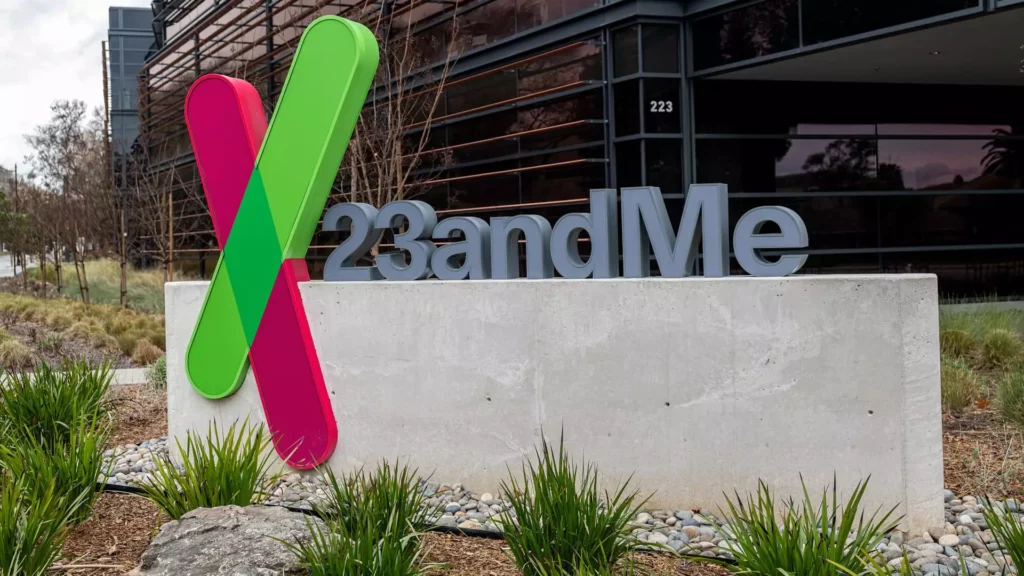The recent news surrounding 23andMe’s Chapter 11 bankruptcy filing is not merely a financial blunder; it is a clarion call about the fragility of consumer data privacy in an age where genetic information is both invaluable and incredibly vulnerable. Once celebrated as a trailblazer in the field of genetic testing and ancestry exploration, the company’s collapse reveals the precarious nature of a business model that pivots dangerously on the delicate issue of personal data ethics. In an arena where consumer trust is paramount, this seismic development raises critical questions about the safeguarding of sensitive information.
The Inherent Risks of Genetic Data
At the crux of the growing anxiety is the nature of DNA itself. Each individual’s genetic code is not only distinct but fraught with intricacies that can reveal predispositions to various health conditions, including hereditary diseases. Traditionally, this data has been viewed as the raw material for scientific exploration, but the complications arise when this information is mishandled or exploited. Financial setbacks aside, the risk of identity theft and misuse looms large, particularly when a data breach has exposed sensitive personal information of about seven million users. If this is not a wake-up call, what is?
In light of these events, it’s hard not to feel a sense of indignation. Consumers were lured into trusting 23andMe with their most personal information, under promises of secure handling and ethical data management. Unfortunately, the current scenario starkly contrasts those promises, bringing to light the ethical dilemmas we face in an increasingly digitized world.
Consumer Power Amid Crisis
As the company throws lifelines in the hopes of securing a buyer, their assurances about user privacy carry an unsettling tone. California Attorney General Rob Bonta has urged consumers to take initiative—rightfully so. Deleting one’s genetic information may appear easy on paper, but navigating the labyrinth of settings can be daunting for the average user. This emphasizes an emerging reality: consumers must take a proactive stance in managing their sensitive data rather than passively trusting corporations to protect it.
The shifting landscape demands that people educate themselves about the potential repercussions of sharing their genetic data. Vigilance is paramount, and Adrianus Warmenhoven, a member of the NordVPN security advisory board, reinforces this notion by emphasizing the importance of a proactive approach to digital security. This crisis serves as a rallying point for consumers to question how their data is stored, used, and potentially shared.
The Ethical Quandary of Genetic Testing Companies
The turmoil surrounding 23andMe is not an isolated incident; it reflects a broader challenge that genetic testing companies face as they strive for both profitability and ethical responsibility. The ethical stewardship of consumer data should not be a secondary concern but a fundamental principle ingrained in the very fabric of these organizations. While 23andMe claims it intends to place user privacy at the forefront of its negotiations, the reality is that the prospect of selling sensitive data to the highest bidder remains a genuine threat.
What remains particularly troubling is the lack of robust regulatory frameworks governing the genetic testing industry. More stringent oversight is essential to ensure companies prioritize ethical practices over opportunistic data collection. With increasing calls for accountability, the actions of lawmakers like Bonta signal a growing recognition of the need for progressive regulatory measures that ensure data security and consumer trust.
A Future Shaped by Data Ethics
The financial predicaments of 23andMe may well serve as a microcosm for the entire genetic testing industry, illuminating the urgent need for systemic change in how consumer data is managed. As we engage in dialogue surrounding the implications of this bankruptcy, we are also gifted an opportunity to scrutinize our roles as consumers. The situation is ripe for a critical reassessment of how genetic testing companies interact with their clientele in terms of data ethics and privacy.
This episode in the story of 23andMe challenges consumers to demand more from genetic testing services. It symbolizes a turning point where individuals become not just passive participants but proactive defenders of their genetic privacy. In an era where technological advancements outpace moral considerations, we must exercise vigilance—not just for ourselves, but for future generations wary of the implications of sharing their biological secrets in an untrustworthy digital marketplace.









Leave a Reply